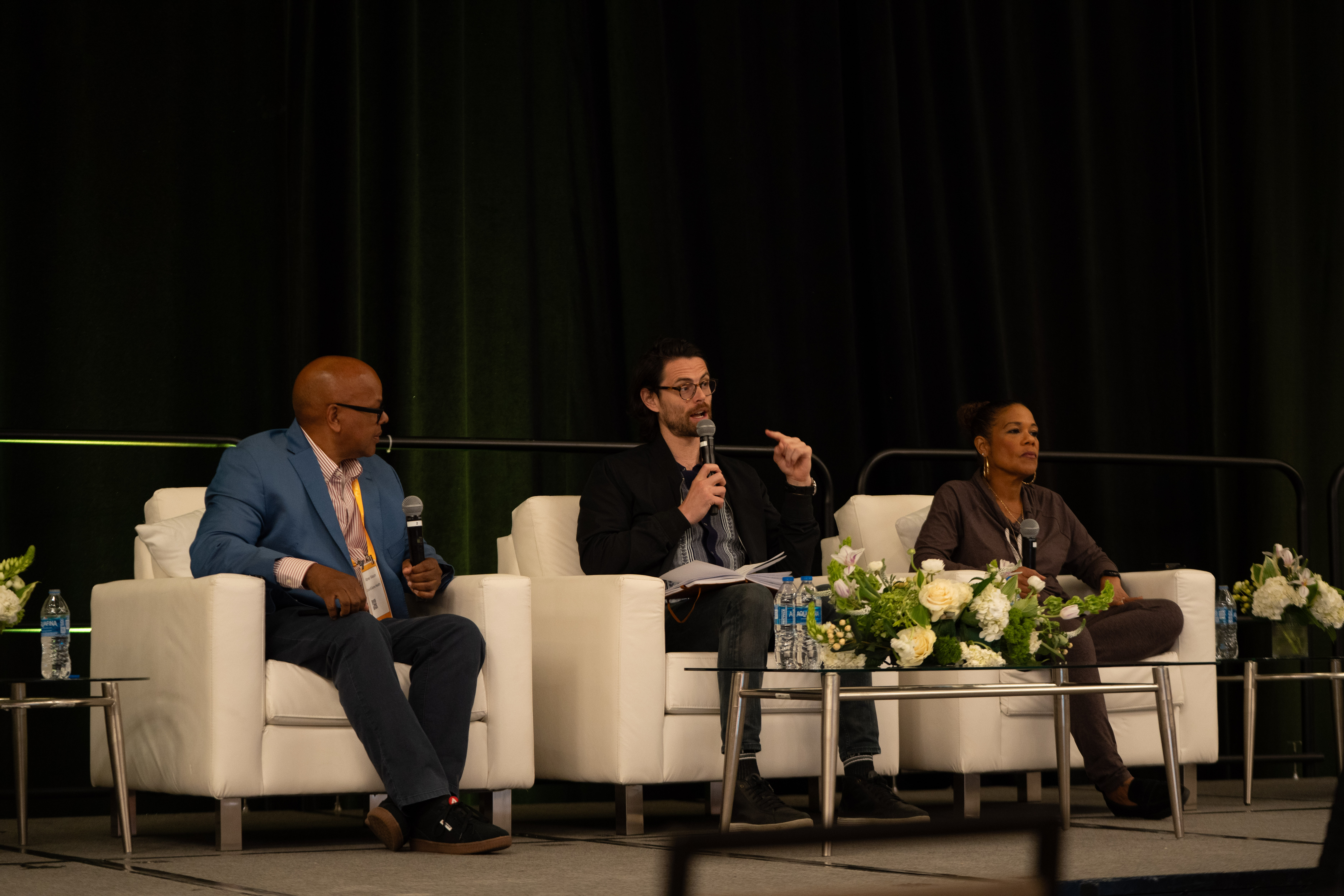
Sandra Elizabeth Ford, M.D., M.B.A., F.A.A.P., public health expert, CEO, BFT Consulting, LLC, former special assistant to the President for public health and science, White House Domestic Policy Council, and Andrey Ostrovsky, M.D., former chief medical officer, U.S. Medicaid Program, managing partner, Social Innovation Ventures, had a transparent conversation on Tuesday at The RISE Summit on SDoH about how the changing political landscape will shape health care policy.
Both speakers shared their best- and worst-case scenarios for the next four years. But changes and impacts are unknown and especially unpredictable under the new administration, Ostrvosky stressed.
Best- and worst-case scenarios
In a best-case scenario, the administration realizes the impacts of the aggressive actions in rescinding executive orders related to DEI, environmental issues, and AI guidelines and pulls back a bit, said Ford. But in a worst-case scenario, she foresees more restrictions on fairness and separation based on race and socioeconomic status.
Considering potential legislative cuts exceeding $800 billion and the significant impact on Medicaid and Medicare, a “less bad” scenario, according to Ostrovsky, would be if the cuts are implemented over a 10-year period so that the Medicaid infrastructure and, by association, funding for social determinants of health (SDoH), may not be jeopardized directly in the next couple of years.
But the worst-case scenario, in his opinion: a “regional implosion” of the health care systems at large, which he said will result in economies imploding and cause states to face difficult choices between health care and essential services amid significant funding cuts.
But all is not lost, he said. “We had two steps forward, and now we’ve taken about 1.7 steps back, but there is going to be forward progress in that net. So, there is hope.”
Reframing the narrative around SDoH
Ford and Ostrovsky also shared their thoughts around the naming of SDoH and its implications.
“When we named social determinants of health, we gave them a target…because this work has been done for generations, but once you name things, now you have a target to point at,” said Ford. “So SDoH gives them a word to eliminate or a word to frown upon. If we just stop calling it social determinants and just do it—it's a little harder to attack.”
Ostrovsky also focused on the way in which SDoH are spoken about beyond just terminology.
“We cannot talk about social determinants of health because they are societal good. We can't talk about DEI because it is a societal good. They are societal goods. But it doesn't matter in the real world. What matters, unfortunately, is money. If the thing makes money, it will get attention,” he said.
“There is management science showing investing in DEI helps firms out compete in the marketplace by making more money over the long term. So, we need to reframe our entire narrative around SDoH to focus on how it leads to a financial ROI, to a health plan, to a state Medicaid program, to taxpayers.”
As fellow pediatricians, Ostrovsky and Ford related to struggling to look through a financial lens over the people you serve.
“Obviously as pediatricians, we don't think through the lens of financial ROI,” Ostrovsky said. “We think about our babies and our families. But in the interest of our babies and our families, we have to use that kind of language and that kind of framing.”
Remaining resilient
At the end of the discussion, session moderator, Abner Mason, chief strategy and transformation officer, GroundGame.Health, asked Ford and Ostrovsky for their advice to everyone doing this work to keep going despite the challenges ahead.
“A lot of people have had their lives turned upside down and their careers upended,” said Mason. “They've been told that what they care about and what they do not only is not important but, somehow, it's bad for the country.”
It’s a time of resilience, said Ford.
“This is when you dig deep,” she said. “You all have other talents that you may need to exercise at this point to figure it out. You can still be your own DEI officer, you can be your own health equity champion in the way you operate in your agency without having to put it into policy. If your moral compass tells you it’s the right thing to do, then it makes it a little bit easier. I think that's the road that we're going to have to take.”
Ostrovsky added the importance of acknowledging the difficult time and getting through it together.
“It’s okay to have the sadness…lean in and embrace it and acknowledge that being anxious is a normal feeling right now. Sit with it and sit with each other and remember that you have a community of people here.”
